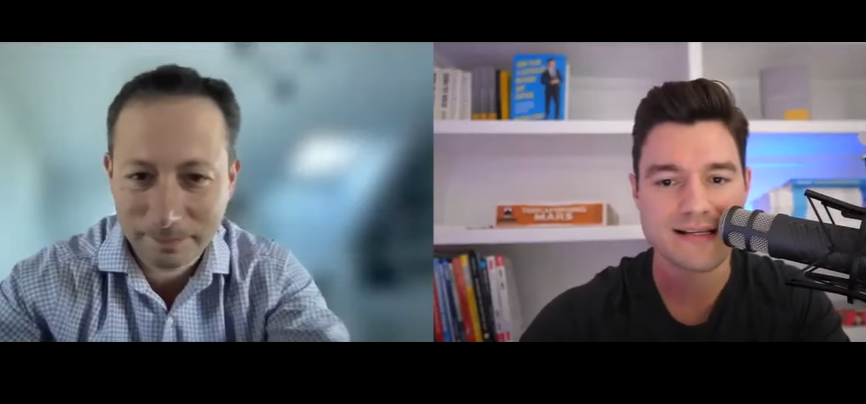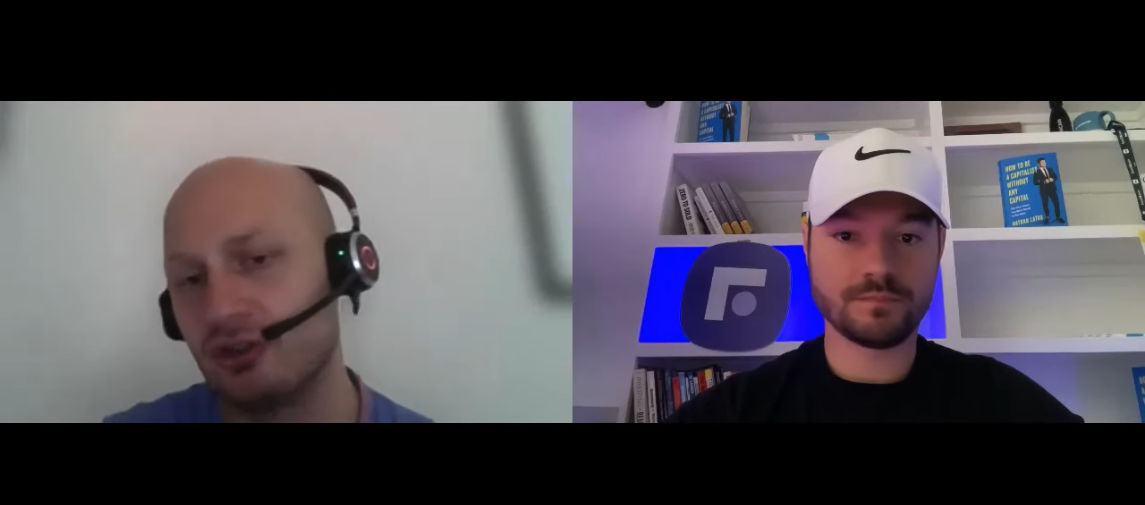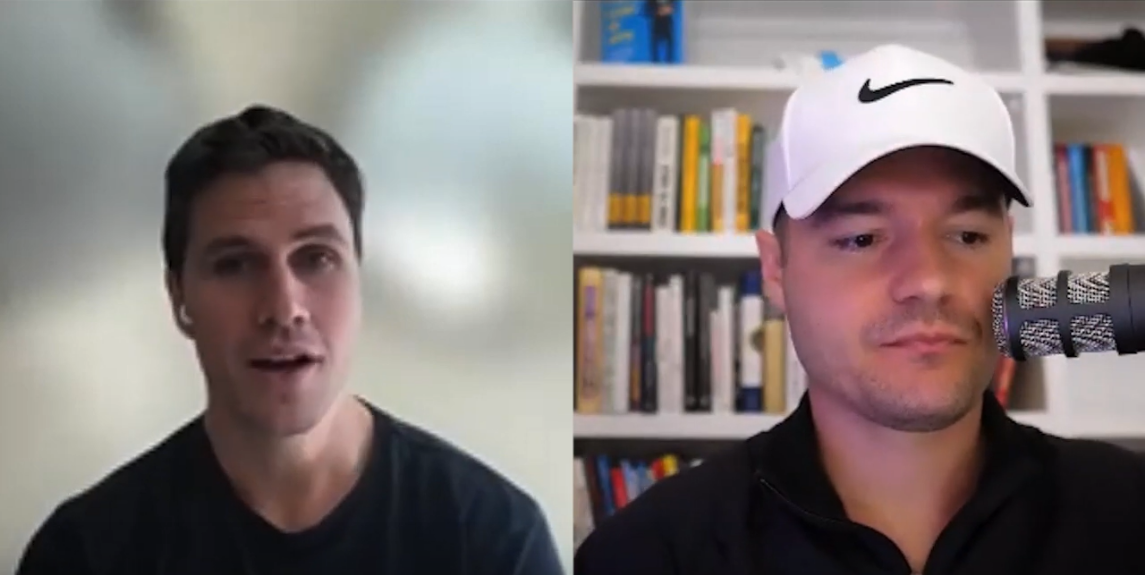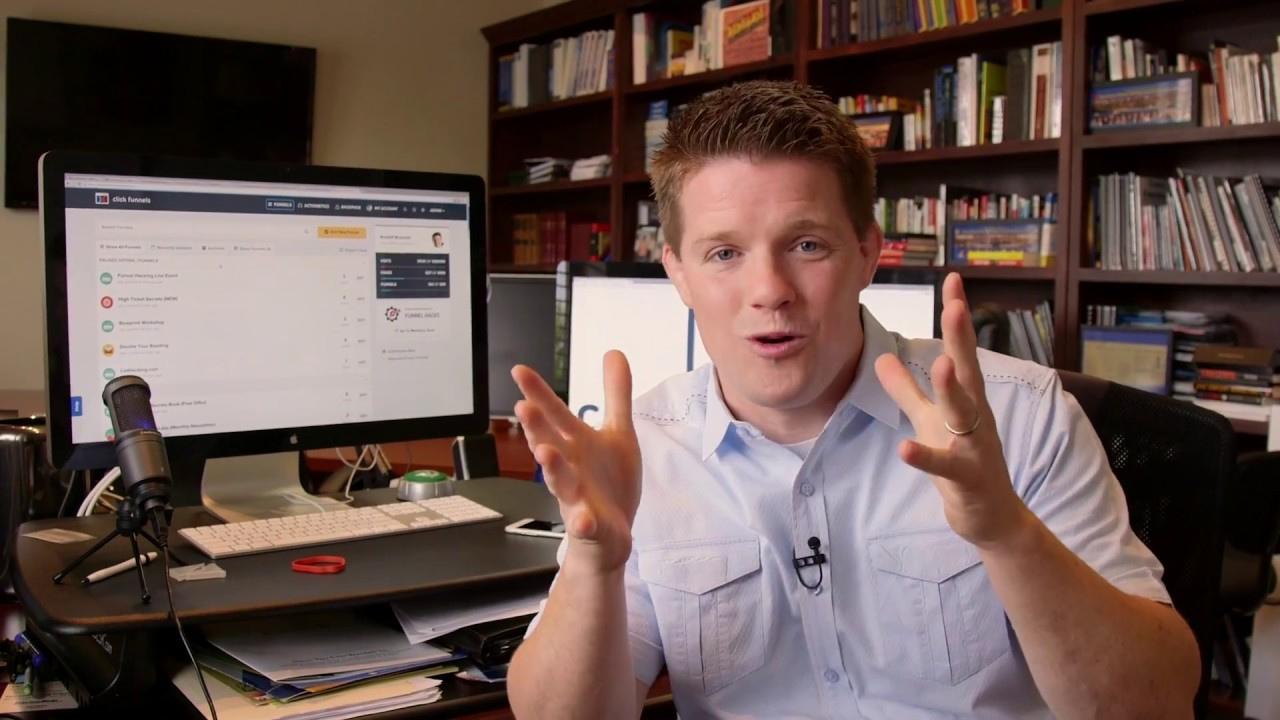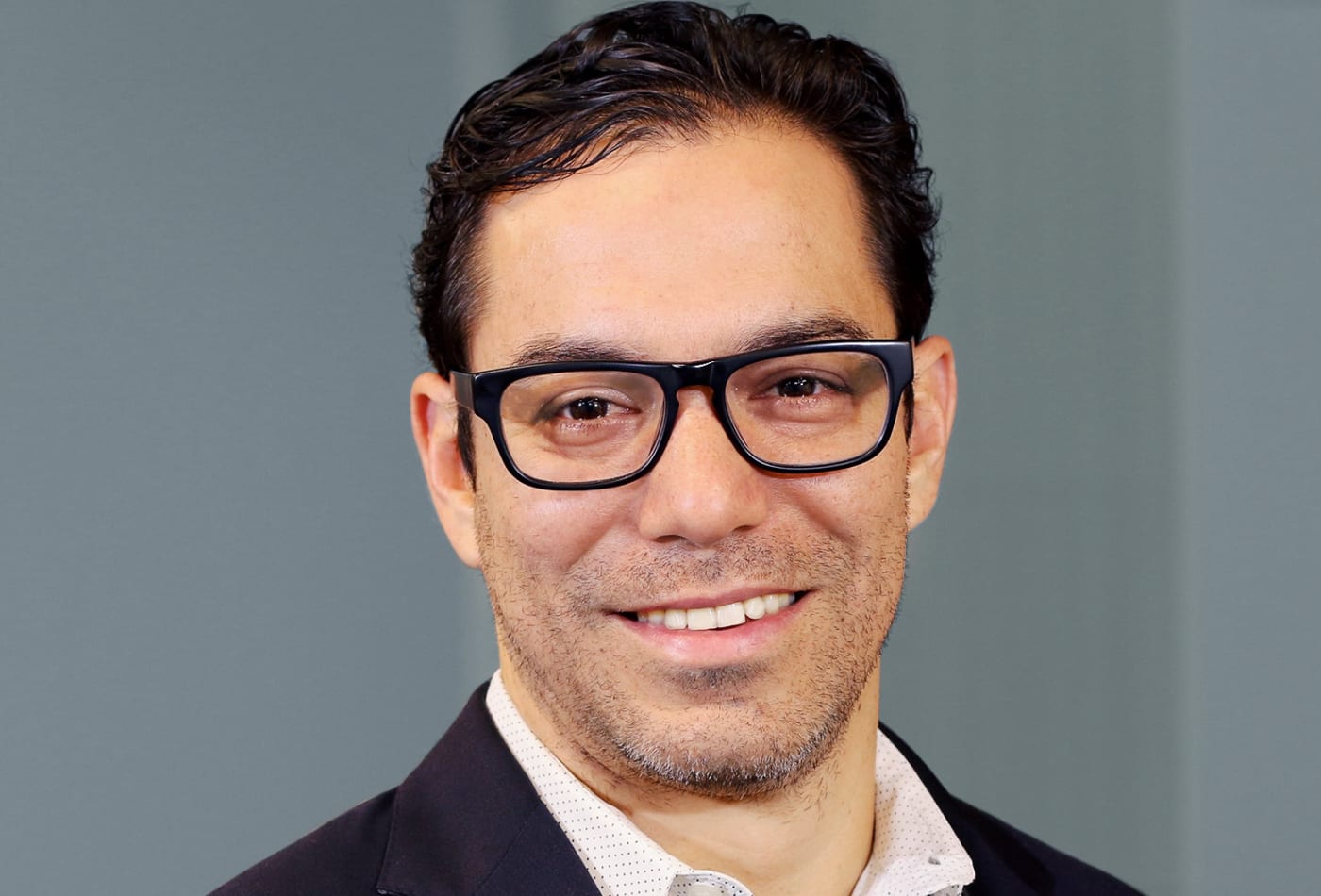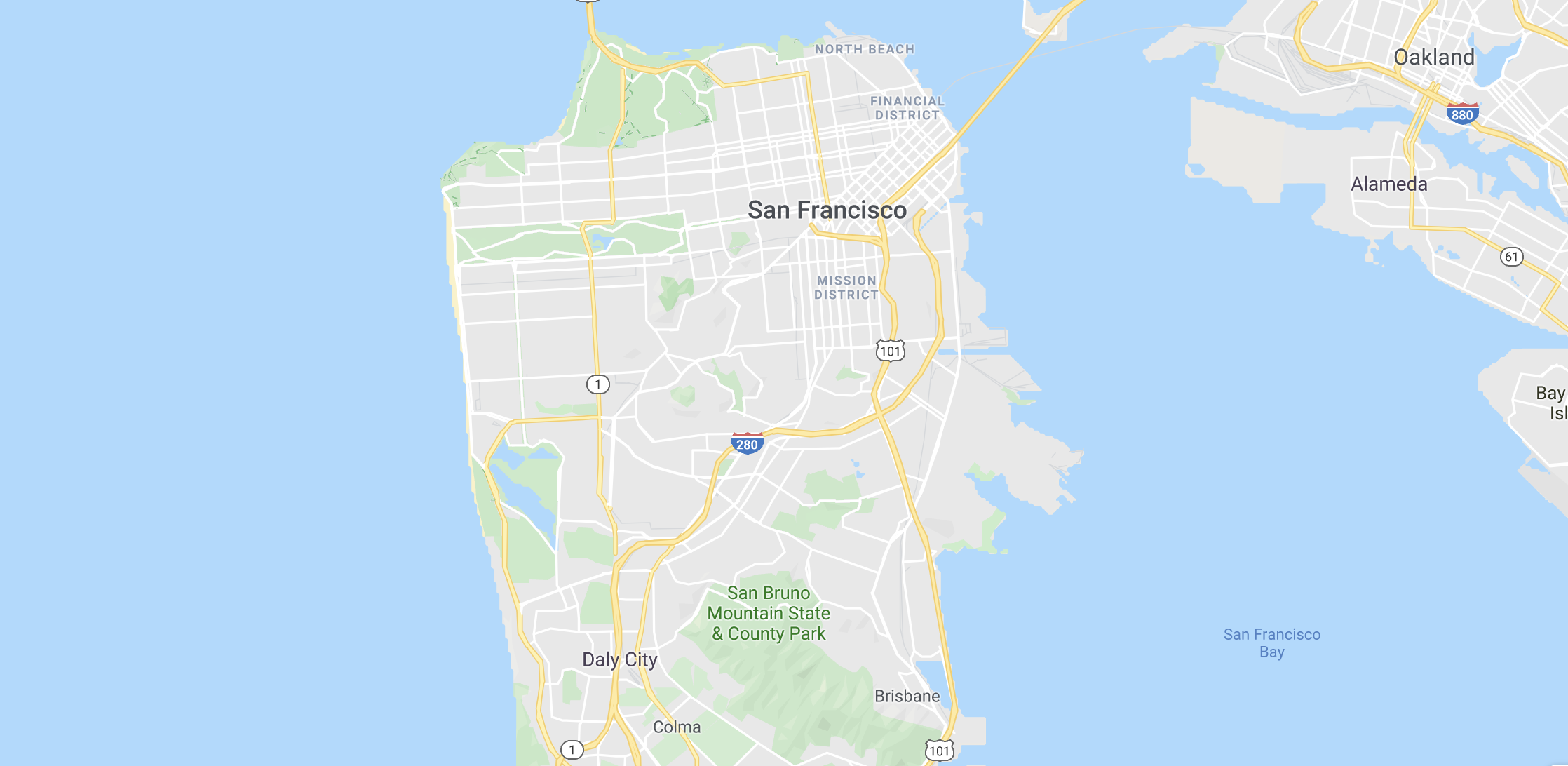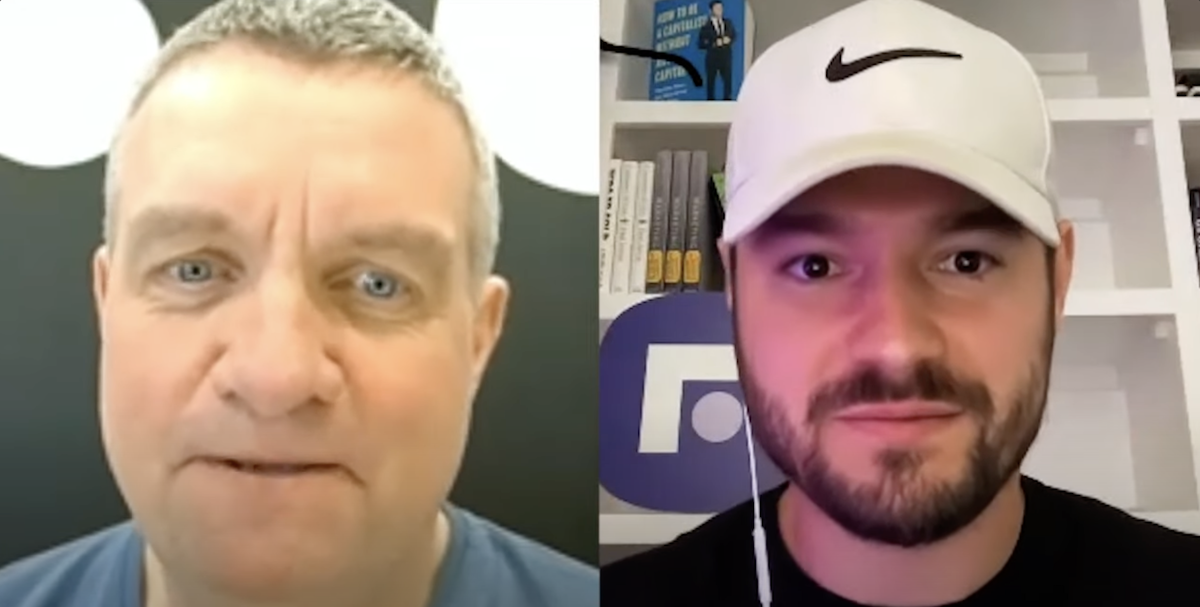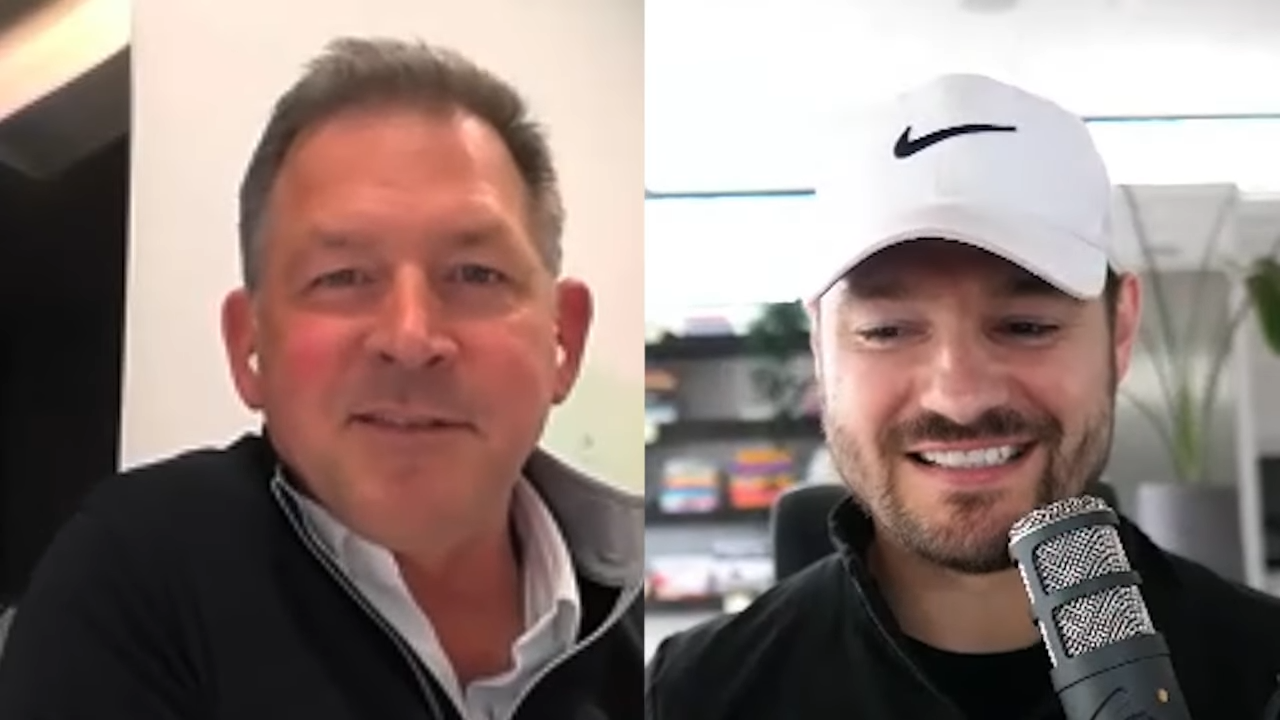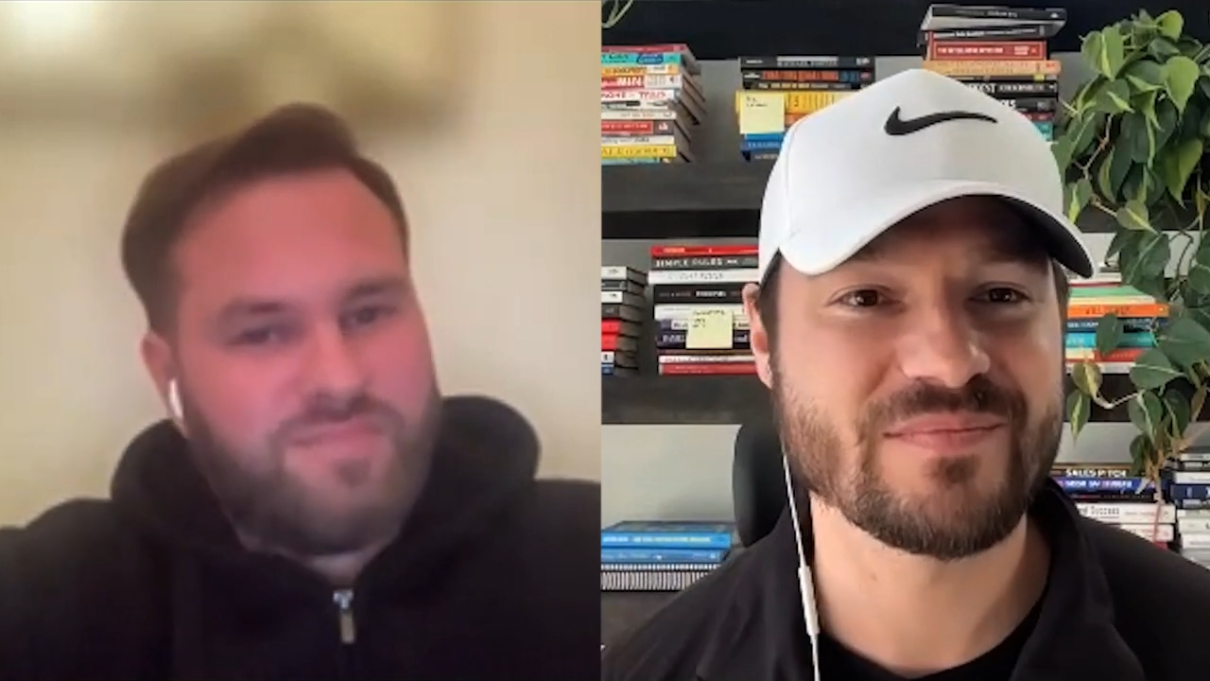SecurityScorecard provides clarity in an uncertain world. Through their cybersecurity ratings, customers and vendors are able to ameliorate their security ratings, while checking in on partners and channels that wish to do business with them.
Nathan Latka sat down with co-Founder and CEO of SecurityScorecard Alek Yampolskiy to learn more about the rapid success of the company, and how it has navigated their unique value proposition in a growing SaaS dominated world. Key metrics include:
- Over 1,700 customers
- Increased run rate more than 50% YoY
- 115% net dollar retention
Nathan Latka (00:00):
Hey folks. My guest today is Alek Yampolskiy. He’s a globally recognized cybersecurity innovator, leader, and expertise. Co-founder and CEO, he’s led SecurityScorecard’s since its beginnings in 2013 to become into the world’s most trusted cyber security brands. Alek, you ready to take us to the top?
SecurityScorecard CEO Aleksandr Yampolskiy (00:15):
Let’s do it.
Nathan Latka (00:16):
All right, so you are in a very hot space. How do you differentiate yourself from some of the others? Like KnowBe4 or Malwarebytes or others in the cyber security space?
SecurityScorecard CEO Aleksandr Yampolskiy (00:25):
Sure, so we don’t compete with guys like KnowBe4 or Malwarebytes. There’s a lot of security solutions out there, but the insight that we had when we started the company is that a lot of solutions out there, but there’s no KPIs being used to quantify how you’re doing. We invented a way to measure and communicate cybersecurity and it became a crucial tool to communicate risk to the board, to measure suppliers, to measure investment targets, to measure others. We do have competitors in a space, but we rated the largest number of companies with, we have a broadest and deepest amount of coverage. We have a marketplace of apps and services and nobody else does compared to us in the rating space.
Nathan Latka (01:09):
What is the name of your rating that you’ve sort of branded?
SecurityScorecard CEO Aleksandr Yampolskiy (01:13):
SecurityScorecard?
Nathan Latka (01:13):
It is literally is called SecurityScorecard? That is the score.
SecurityScorecard CEO Aleksandr Yampolskiy (01:16):
Our company name represents basically what we’re do. We give companies scorecards and we teach those companies how to improve the ratings and how to become more resilient.
Nathan Latka (01:29):
I’m seeing obviously everFinance is an example with a 72 security score. Broken down, they score really poorly, an F, on network security of 52. Their DNS health is 74. They’re patching cadence is 75. Alek, I say this like I’m smart and I know what the hell those things mean, I don’t. How many of those kinds of things do you measure?
SecurityScorecard CEO Aleksandr Yampolskiy (01:46):
We pick up hundreds of different signals from outside non intrusively. You don’t need to get a permission consent. Then by sitting on seven years of historical data, we reduce all this information into a score. We’ve demonstrated historically that companies with a bad score have a seven times higher likelihood than companies with a good score to suffer a data breach. That actually is what gives us a mode. The mode is that even if I give you all our source code, all our architecture, all of our 25 plus patents and said, go compete with us, you’re not going to have this historical dataset where we calibrate what data sets map more accurately to likelihood of a bridge. The more information we accumulate the higher, the barrier to entry becomes.
Nathan Latka (02:34):
Do you need the company’s permission to issue a score? For example, if HubSpot’s public. Can you do an analysis and publish and say they had a really bad score, would it impact their stock price?
SecurityScorecard CEO Aleksandr Yampolskiy (02:45):
We don’t need to have permission or consent to rate anybody because all the signals we pick up are non-intrusive from outside and a signal could be very simple. For example, I look at the website of Lodka magazine and I see at the bottom copyright 2008 hypothetically. It’s 2021, so it means you’ve not updated your site for 13 years. Very simple data point, but it points you to what’s happening behind the scenes in the company. There could be much more complicated signals like for example, malware beaconing outside of your infrastructure. Indication of poor passion, cadence that you’re not updating the software.
SecurityScorecard CEO Aleksandr Yampolskiy (03:25):
Indeed, if we look at our customers, if we look at users of our solution, people base decisions who to do business with, who not to do business with, who to ensure, what type of premium to charge for cyber insurance, the key business decisions being made based on the scores that we provide.
Nathan Latka (03:43):
This makes complete sense. I want to dive into how you dominate this space, how you came up with a score that became industry standard. First, how many customers are you serving out today?
SecurityScorecard CEO Aleksandr Yampolskiy (03:52):
We are right now at about 1700 plus paying customers. People who use our scores to rate others with over 12 million companies in a dataset that will rate 1700 paying customers. Then there’s over 25,000 freemium users because any paying customer can invite for free any other company into the platform and say, Hey, go improve your score if you do business with us. As a result, that drives kind of additional people to join the freemium funnel as well.
Nathan Latka (04:23):
I want to talk more about that freemium funnel, including this one pager you sent me for your Q2 planning where you have effectively three buckets of key results that you focus on and how you’re driving the business that way. First, take us back. You launched the business in 2013, 2014. Do you remember what year you passed a million dollar run rate?
SecurityScorecard CEO Aleksandr Yampolskiy (04:41):
We launched a business basically in 2014 and for most of 2014, we were incubating the product. We really were just building a product in 2014. We really surpassed the one million run rate for the business only in 2015, because most of 2014 was spent building a product. We only really started selling around kind of June, July 2014 and it grew rapidly. The first year we passed a million was in 2015.
Nathan Latka (05:16):
Do you remember what your starting price point was? I think you’re really playing mid-market enterprise now today. Have you moved up market over the past six years?
SecurityScorecard CEO Aleksandr Yampolskiy (05:25):
The way that we operate is it’s an annual upfront subscription. You pay annual paid upfront. The variability is the number of scorecards you want to monitor. A scorecard is just a company. It could be your supplier, your investment target. We charge anywhere from a few thousand bucks a year for monitoring a score card, and the prices could go down if you want to monitor quite a lot. Some people can monitor tens of thousands of scorecards. For example, like a private equity firm monitoring its investments or a big bank monitoring its vendors. Some people can monitor 10 or 20.
SecurityScorecard CEO Aleksandr Yampolskiy (06:08):
The average contract is about $40,000 bucks a year, paid up front. Some people pay us millions dollars a year paid up front, and some people just 10-20K. The average is about $40,000. The cool part about it is if I charge you to monitor Lodka magazine and I charge 20 other people to monitor Lodka magazine, I don’t incur any additional costs because I recompute the scorecards once a day and then I just resell the data. It doesn’t cost me anything more to get 20 more customers or 40 more customers to get access.
Nathan Latka (06:44):
Can I do the math there, Alek. 1700 customers at that $40,000 AAV puts you at about what? A $70-71 million run rate today?
SecurityScorecard CEO Aleksandr Yampolskiy (06:52):
That’s correct. Yeah, so we’re going to finish this year at about anywhere from $70 to 73 million annual recurring revenue. We’re growing very rapidly. We’re consistently exceeding 50% plus growth rate, much faster than our direct competitor. Our direct competitor is barely growing at 20% rate.
Nathan Latka (07:11):
Who is your direct competitor?
SecurityScorecard CEO Aleksandr Yampolskiy (07:14):
Bitsight is our primary direct competitor.
Nathan Latka (07:15):
Bitsight?
SecurityScorecard CEO Aleksandr Yampolskiy (07:17):
Yep, that’s kind of the main competitor we have. There’s a bunch of smaller ones, but we don’t really see them in bake offs as much. Next year we plan to continue the same growth rate and more so we’re going to far surpass the hundred plus next year and beyond. We actually anticipate to be able to grow faster next year?
Nathan Latka (07:39):
Do you know how much revenue Bitsight’s doing or an estimate?
SecurityScorecard CEO Aleksandr Yampolskiy (07:42):
Those guys are going to do about a hundred million in ARR and they’re growing kind of barely at 20%.
Nathan Latka (07:48):
Interesting. What stalled them out? Do you have any ideas? Maybe your growth has stalled them out.
SecurityScorecard CEO Aleksandr Yampolskiy (07:53):
Well, look, we beat them 70% of a time in a bake off. There’s many, many companies who switch over to us when we ask them why do you switch? They say, look, number one, your product just has a lot more value. We have workflow automation. We have the inside out component called Atlas. We have a marketplace of apps and services.
SecurityScorecard CEO Aleksandr Yampolskiy (08:18):
At the end of the day, we are a customer first company. I’m an engineer. I was a chief security officer so naturally the way that I run the company, it’s all about the customer. You need to deliver value for the customer. The most important share in the room is occupied by the customer. Our competitor is more of a sales, marketing driven company. They’re focused on PNL, but they’re not as much focused on the customer value.
Nathan Latka (08:45):
Alek, we love capital efficiency. Obviously public markets love capital efficiency as well, quantified by rule of 40. It looks like Bitsight has raised about $400 million bucks to hit a hundred million of ARR. $4 raised for every dollar of ARR. You guys, I believe have only raised $290 million and you’ve been more efficient.
SecurityScorecard CEO Aleksandr Yampolskiy (09:02):
We’re still setting on almost $200 million in cash.
Nathan Latka (09:05):
In the bank?
SecurityScorecard CEO Aleksandr Yampolskiy (09:06):
Yeah.
Nathan Latka (09:07):
Interesting.
SecurityScorecard CEO Aleksandr Yampolskiy (09:07):
We’re sitting on almost $200 million in cash that we can use opportunistically for many, many options.
Nathan Latka (09:14):
Obviously you’ve spent other money besides just what you’ve raised, because you have revenue coming in, but you’ve spent obviously way less than your competitors have to grow to the same or relatively same amount of ARR.
SecurityScorecard CEO Aleksandr Yampolskiy (09:24):
Look, I mean, we definitely investing ahead of a curve. It’s a new market being created. We believe that security ratings… When you drive a car, you have a speedometer showing to you the speed with which you going. You go to a doctor, they measure your blood pressure. You buy a stock bond or a stock instrument, you have credit ratings from guys like S&P, Fitch, and others. For cyber security, something like that has not existed. We believe it’s a market that’s going to be a huge, huge market down the road.
Nathan Latka (09:59):
Help me understand growth and valuation. This is a game you have to play once you on the VC track and I think you’re playing it fairly well. You recently raised, I believe in April this year, $180 million at what? Basically a billion evaluation, right?
SecurityScorecard CEO Aleksandr Yampolskiy (10:10):
Correct.
Nathan Latka (10:11):
That was a post money valuation?
SecurityScorecard CEO Aleksandr Yampolskiy (10:13):
That’s the post money, yes. We raised at about a billion post.
Nathan Latka (10:17):
Take me back to the $50 million round you did in 2019. What valuation was that at?
SecurityScorecard CEO Aleksandr Yampolskiy (10:22):
Oh, I mean we’re more than tripled. We’re more than tripled. Basically it was in the three something. 320-240. We’re more than tripled the evaluation.
Nathan Latka (10:33):
340 post money?
SecurityScorecard CEO Aleksandr Yampolskiy (10:35):
I don’t remember the exact number, but something roughly in that range. Every round we did was oversubscribed, multiple term sheets. We believe that within the next 18 to 24 months, again, we’re going to triple or quadruple our valuation of our company or more. There’s a good opportunity for us to take this company public to an IPO. Lots and lots of interesting tailwinds in our favor right now.
Nathan Latka (11:01):
What metrics, I mean you and I both study publicly traded SaaS companies and benchmarks and things. What sort of numbers do you think you have to hit to be competitive on your first day of trading if you do decide to go public?
SecurityScorecard CEO Aleksandr Yampolskiy (11:13):
Well, look, whenever you go public, by the way, of course you want to have a good story but you don’t want to have a story which cannot be further improved. You don’t want to be going public and nothing else can be improved and it’s all downhill from there. That’s not the story you want to tell. You want to tell a story of growth and the story of potential and the story of upside.
SecurityScorecard CEO Aleksandr Yampolskiy (11:36):
Look, I can tell you, our net retention is solid. Our net retention is covering between 115 to 120%. I want to increase it by about 10% further and get it into 125-130. That’s definitely kind of an area of attention for us. I think from a growth perspective, we’re doing fine. Our gross margins are very healthy, between 75 to 80% and we’re not worried there.
SecurityScorecard CEO Aleksandr Yampolskiy (12:11):
Overall, I feel like it’s only just internal execution. All the tailwinds are in our favor. It’s really all about just methodical execution and getting the right team together and building additional products that we can cross sell, upsell into our customers to deliver more value for our customer base.
Nathan Latka (12:30):
Your number one way to drive expansion revenue right now, I believe, correct me if I’m wrong, is to sell more number of scorecards tracked. Are there other things you’re upselling against right now that you think will enable you to get to that 130-140 net dollar attention mark?
SecurityScorecard CEO Aleksandr Yampolskiy (12:45):
Well, we need to have more modules to cross sell, upsell. We have Atlas, which is the inside out component. We have ratings, which is the outside in and we’re actively building and developing additional modules that our customers are asking us for. Ultimately at the end of the day, it’s all about the customer value. That’s what it’s all about. I’m not sitting and thinking, oh, how do I optimize the metric? I’m thinking, how do I deliver more value to my existing customers because if you deliver more value to your existing customers, they’re going to love you. They’re going to be loyal. Also, you expand your total addressable market by doing more of that.
Nathan Latka (13:24):
Alek in 2022, if you add no new customers and you can only focus on building great new product lines, new modules to upsell your current base, how much do you think you can grow by?
SecurityScorecard CEO Aleksandr Yampolskiy (13:34):
In 2022?
Nathan Latka (13:38):
Next year.
SecurityScorecard CEO Aleksandr Yampolskiy (13:39):
Yeah. I’m going to grow at least by 50% without adding any new modules.
Nathan Latka (13:43):
Oh, sorry, ignore new customers. If you only focus on expansion revenue in 2022, do you think you can get to 30, 40% just upselling current base?
SecurityScorecard CEO Aleksandr Yampolskiy (13:52):
Yeah, I’m pretty sure I can. Yeah, I’m actually quite sure that I can. We like to under promise and over deliver when we scale the company so yes. I mean, our customers are loyal, they’re happy, and lots of those customers buy a lot more from us.
Nathan Latka (14:08):
Take me more inside. You’re an engineer which means you focus on the numbers. I was in your office. We were doing the photo shoot for this magazine and I saw these hanging things and I’m going, what is this, Alek? This is an older one, but it’ll help us learn here. We have your Q2 2021 security scorecard OKRs. Help me understand how this OKR process works. What year, what revenue, how big were you when you started implementing these and how did they work today?
SecurityScorecard CEO Aleksandr Yampolskiy (14:33):
Sure. OKR, which stands for objective key results, many companies use it. Google uses it, Intel uses it. Initially it was pioneered by Andrew Grove who was the CEO of Intel. Always the objective, you set an aspirational objective and then the key result are the measurable results and they cascade to the rest of a company.
SecurityScorecard CEO Aleksandr Yampolskiy (14:55):
We tried doing OKRs about four years ago, like four and a half years ago for a company. I can tell you that back then we miserably failed. It didn’t work.
Nathan Latka (15:10):
Why?
SecurityScorecard CEO Aleksandr Yampolskiy (15:13):
I’m like, wait a second. OKR has worked for this company, why is they’re not working for us? The reason was simple. We made only one small tweak. Now every Monday we have a stand up exec meeting for all VPs and above and we start that meeting by going over the OKRs.
SecurityScorecard CEO Aleksandr Yampolskiy (15:30):
What did you say you were going to do last week? What did you actually do? It creates social pressure and it creates accountability for people to report on the progress and that small, subtle tweak, where now you just do a group meeting and you report weekly on your progress made all the difference. To give an example, back in Q2, one of the objectives that we had was to launch a marketplace. We wanted to create an ecosystem of apps and services on top of a platform that we created.
SecurityScorecard CEO Aleksandr Yampolskiy (16:01):
We had an objective, build the best in class marketplace and we had two underlying key results. Number one, launch a press release which announces at least five new partners joining the marketplace. The key was how many people signed up in a press release. The second key result was to measure how many times was the marketplace mentioned as a win reason when we baked off against the competition and wanted to make sure that that win reason goes to 15% of a time, marketplace was a driver for the win. We measured it relentlessly. We launched a marketplace with a lot of incredible partners like CSC domain register, tenable vulnerability scanner…
Nathan Latka (16:45):
RedSift, HackerOne, Microsoft Teams.
SecurityScorecard CEO Aleksandr Yampolskiy (16:47):
HackerOne, Microsoft Teams and many others and our customers loved it. It delivered value and it helps us differentiate and win modules.
Nathan Latka (16:56):
You hit this one, the headline, June 2nd, 2021. SecurityScorecard launches integrate 360 marketplace to enhance value for customers by finding, managing, and mitigating cyber security risks. You guys, you kick that one in the butt. Your other two objectives, the second one was enhanced customer education and onboarding. It was interesting what you used to measure this. You said we’re going to use Pendo to measure our stickiness score and we want to improve that, I believe by 45% by the end of the quarter. Tell me more about that one.
SecurityScorecard CEO Aleksandr Yampolskiy (17:24):
Yeah, so the big initiative for us, again, focused on how do you provide value for the customers was how do we educate people about what security rating can do for them? If I give you a score, how do you use it? How do you communicate to the board? How do you hold your suppliers accountable? We built a whole team responsible for onboarding education and then we measured the output. We measured in Pendo which is a tool to attach to how people use your product were measured, was the stickiness actually being improved?
SecurityScorecard CEO Aleksandr Yampolskiy (17:56):
That one also worked really well and again, the trick in startups, you don’t know what’s a good idea, what’s a bad idea. You need to try a bunch of things and then you see what sticks but once you see that it sticks, you need to just relentlessly drive execution, measure it and hold people accountable for delivery. There’s no magic, there’s a lot of hard work.
Nathan Latka (18:17):
A lot of hard work. Obviously measuring is important. The last thing you measured increased the percent of existing, both paid and free clients contributing private data to your platform from 363 companies to a thousand companies. Why is that important and did you hit that goal?
SecurityScorecard CEO Aleksandr Yampolskiy (18:33):
Well, it’s important because we believe strongly that our job is to help companies improve their score and so companies, outside scores have limitations and companies need to have a way to provide feedback, to provide commentary. Just like if you have a restaurant you could have customer reviews on Yelp, but the restaurant should be enabled also to provide its own story, provide its pictures, provide its menu. Similarly, we believe that we need to create opportunities with we give companies a score, they need to be able to improve it, influence it, provide inside out data, inside out feedback commentary and so that was an important goal for us to really foster that inside out communication.
Nathan Latka (19:20):
Love that. Wrapping up here, obviously when you go public, you always see companies in their S-1 grades just filed, they’ll say how many counts they have over a million bucks in ARR, just the one contract. Where are you guys at today? How many accounts pay more than a million a year?
SecurityScorecard CEO Aleksandr Yampolskiy (19:34):
We don’t disclose that number. We don’t disclose this number publicly, but the number has been very meaningfully growing. I can tell you, I mean, there’s no concentrated risk. There’s no concentrated risk in our revenue. There’s no like one customer accountant for much.
Nathan Latka (19:53):
No, not looking for risk here.
SecurityScorecard CEO Aleksandr Yampolskiy (19:55):
I can tell you, but I can tell you we have a whole variety of customers across government, insurance, private equity. We have a whole slew of customers and those guys are paying us millions of dollars a year and deploying us on their entire portfolio. It’s been happening more and more and the final-
Nathan Latka (20:17):
Alek, can we say more than 10? Is that fair? I won’t push you harder. More than 10 customers with greater than a million a year contracts?
SecurityScorecard CEO Aleksandr Yampolskiy (20:24):
Yeah, I think it’s fair. Yeah, I think that’s a fair response.
Nathan Latka (20:27):
You’re also building top up funnel, it’s not just bottom. You have 25,000 freemium accounts. We’re at 1700 of converted to paid. That’s 6.8% conversion to paid. Is this a critical focus for you? Moving forward is converting more freemium to paid?
SecurityScorecard CEO Aleksandr Yampolskiy (20:43):
It’s a focus, but it’s not the critical focus. I mean, we are really just focused, we believe that every company in the world should have a scorecard. Every company in the world should have their own scorecard. We’re much more focused on making sure that every company out there has access to a tool for free. They can sign up for free. They don’t need to pay anything and they can control their reputation. That’s been a much bigger focus for us to make sure that we create those distribution channels for them to sign up.
Nathan Latka (21:14):
All right, Alek, before we wrap up with the famous five, you’re sitting on something interesting here. Potentially pre-IPO company, you passed a million in 2015. Do you remember what year you passed 10 million run rate?
SecurityScorecard CEO Aleksandr Yampolskiy (21:26):
I mean, it must have been around 2017. I mean, I have to again check the numbers, but I would assume it was around 2017. It was a fairly typical story. Triple, triple, double, double, double. I think we did a couple of million in ARR in 2015. Then we tripled to about six or seven and then we doubled rapidly. That was kind of a good trajectory for us.
Nathan Latka (21:58):
Yep, no, that makes sense. The reason I’m asking is I’m trying to back into what revenue multiple you raised at in 2019. It sounds like you were around, I mean, you were like a 30-35 million run rate in 2019? 30-35?
SecurityScorecard CEO Aleksandr Yampolskiy (22:13):
Yeah, something around that.
Nathan Latka (22:15):
Healthy growth. You think you’ll grow 50% from 71 million this year. End of next year, you’ll think you’ll break what? 85, 90 million in ARR?
SecurityScorecard CEO Aleksandr Yampolskiy (22:23):
No, we’re going to exceed it. We’re going to break a hundred.
Nathan Latka (22:25):
Next year.
SecurityScorecard CEO Aleksandr Yampolskiy (22:27):
Yeah, a hundred.
Nathan Latka (22:27):
I love it. Look at this guy’s confidence. He’s just looked right in the camera said we’re breaking a hundred next year. Do you file the IPO next year or do you think that’s 2023?
SecurityScorecard CEO Aleksandr Yampolskiy (22:35):
I mean, we are being opportunistic. We are well funded. We’re sitting on plenty of cash. We are optimizing the company. We’re increasing the shareholder value. We’re not in a rush to do it because for us, IPO is just a branding event at the end of a day. We’re sitting on plenty of cash. We beat competitors a lot of time. We’re taking away customers from them. We’re growing faster than them. We’ve got a better, more innovative product. I think within the next couple of years we’ll be strongly contemplating to do it. If not next year, but within 18 to 24 months, we’ll be strongly considering it.
Nathan Latka (23:11):
Folks. You heard it here first. Alek, let’s wrap up with the famous five. Number one, favorite book.
SecurityScorecard CEO Aleksandr Yampolskiy (23:16):
I love Good to Great by Jim Collins.
Nathan Latka (23:20):
Number two, is there a CEO you’re following or studying?
SecurityScorecard CEO Aleksandr Yampolskiy (23:27):
I mean, look, I study everybody. I like to study everybody. I mean, I love the work that Kevin Ryan does. He was my boss at Gilt. He founded MongoDB business insider. I’m a big fan of Kevin so yes, I talk to him, I follow him.
Nathan Latka (23:45):
Number three. What’s your favorite online tool for building SecurityScorecard.
SecurityScorecard CEO Aleksandr Yampolskiy (23:50):
What’s my favorite online tool for building SecurityScorecard.
Nathan Latka (23:53):
Yeah, like Pendo is a good example, but name something else.
SecurityScorecard CEO Aleksandr Yampolskiy (23:56):
I use Evernote a lot. Every day I start, I use Evernote to organize my thoughts.
Nathan Latka (24:01):
How much sleep do you get every night?
SecurityScorecard CEO Aleksandr Yampolskiy (24:04):
Not nearly enough. I usually go to sleep around 11 to midnight and I get up around 7:00 a.m., so about seven hours of sleep.
Nathan Latka (24:14):
Situation? Married, single, kids?
SecurityScorecard CEO Aleksandr Yampolskiy (24:17):
Married, two kids. A boy, 12-years-old and a girl, 10-years-old. They keep me busy, excited, and occupied.
Nathan Latka (24:27):
She’s quite the trick or treater. You shared with me before the show.
SecurityScorecard CEO Aleksandr Yampolskiy (24:30):
Trick or treating was last night with my neighbours.
Nathan Latka (24:34):
How old are you Alek?
SecurityScorecard CEO Aleksandr Yampolskiy (24:36):
I’m 40.
Nathan Latka (24:37):
- Last question. Something you wish knew when you were 20?
SecurityScorecard CEO Aleksandr Yampolskiy (24:40):
Something I wish when I was 20. Well, at the time I wasn’t dating anybody so I wish I would’ve met more people back then.
Nathan Latka (24:50):
Guys, SecurityScorecard, the standard in understanding if your site is at risk or not and how good you’re doing. Private equity firms use it. Over 1700 paying customers use it paying an average $40,000 per year, paid up front. The break is 72 million run rate this year. Up 50% year over year. They broke 6 million run rate back in 2016, 10 million, 2017, 30 million, 2019. Fast trajectory here as they focus on adding additional modules to help founders beef up their security. 115% net dollar retention and growing rapidly. Feels very good about breaking a hundred million bucks in AR next year. Alek, thank you for taking us to the top.
SecurityScorecard CEO Aleksandr Yampolskiy (25:22):
Thank you, talk soon.
